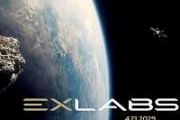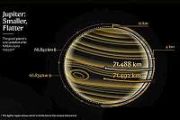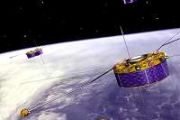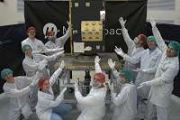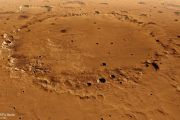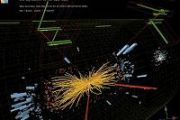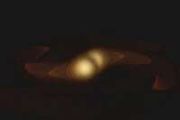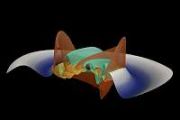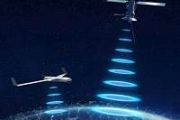
Copernical Team
NASA's Ingenuity in contact with Perseverance after communications dropout
 On Thursday, May 5, mission controllers at NASA's Jet Propulsion Laboratory received confirmation that the agency's Ingenuity Mars Helicopter had re-established communications with the Perseverance rover. Earlier in the week, the rotorcraft had missed a planned communications session with the rover - for the first time in over a year of operations on the Mars surface. Ingenuity relies on Perseve
On Thursday, May 5, mission controllers at NASA's Jet Propulsion Laboratory received confirmation that the agency's Ingenuity Mars Helicopter had re-established communications with the Perseverance rover. Earlier in the week, the rotorcraft had missed a planned communications session with the rover - for the first time in over a year of operations on the Mars surface. Ingenuity relies on Perseve Briton, Belarusian held at Kazakh spaceport: Roscosmos
 A British man and a Belarusian woman have been detained at the Russian spaceport of Baikonur in Kazakhstan, Russia's space agency Roscosmos said on Saturday.
On Saturday evening, "a report was received from the space centre concerning the detention of British citizen Rich Benjamin and Belarusian citizen Zelupa Alina", Roscosmos chief Dmitry Rogozin said on Telegram.
The two were apprehen
A British man and a Belarusian woman have been detained at the Russian spaceport of Baikonur in Kazakhstan, Russia's space agency Roscosmos said on Saturday.
On Saturday evening, "a report was received from the space centre concerning the detention of British citizen Rich Benjamin and Belarusian citizen Zelupa Alina", Roscosmos chief Dmitry Rogozin said on Telegram.
The two were apprehen NASA's Crew-3 astronauts splash down in Gulf of Mexico
 After a 24-hour delay to be sure of weather conditions in the Atlantic Ocean, NASA's Crew-3 returned to Earth on Friday with a splashdown in the Gulf of Mexico just off the coast of Florida.
NASA's Raja Chari, Kayla Barron and Tom Marshburn and Germany's Matthias Maurer splashed down in their Dragon Endurance capsule at 12:43 a.m. EDT.
"We're glad to be back," Chari told the Spac
After a 24-hour delay to be sure of weather conditions in the Atlantic Ocean, NASA's Crew-3 returned to Earth on Friday with a splashdown in the Gulf of Mexico just off the coast of Florida.
NASA's Raja Chari, Kayla Barron and Tom Marshburn and Germany's Matthias Maurer splashed down in their Dragon Endurance capsule at 12:43 a.m. EDT.
"We're glad to be back," Chari told the Spac Matthias returns to Cologne
 Image:
Matthias returns to Cologne
Image:
Matthias returns to Cologne NASA's Artemis I launch likely slipping to August with retry of pad test in June

NASA officials gave an update Thursday on the status of the Artemis I moon rocket launch saying it likely is targeting early- to mid-June before it rolls back out to the launch pad for a wet dress rehearsal at Kennedy Space Center.
NASA Administrator Bill Nelson suggested last week that August would be the earliest for a launch attempt, and NASA's Jim Free, the associate administrator for the Exploration Systems Development Mission Directorate, confirmed that.
"As we've been saying, we'll set that official launch date after we get through wet dress," Free said. "But you know based on some of historical challenges from similar programs over the years and the schedule performance we've seen thus far, we are looking at a couple of launch periods through the August time frame."
One of the previously announced launch windows runs from July 26 to Aug. 9.
NASA rolled the Space Launch System rocket topped with the Orion spacecraft to KSC's Launch Pad 39-B back in mid-March and attempted to run through a simulated countdown along with the filling and draining the core and upper stages with 730,000 gallons of super-cooled liquid hydrogen and liquid oxygen.
First rays of sunlight for balloon-borne solar observatory Sunrise III
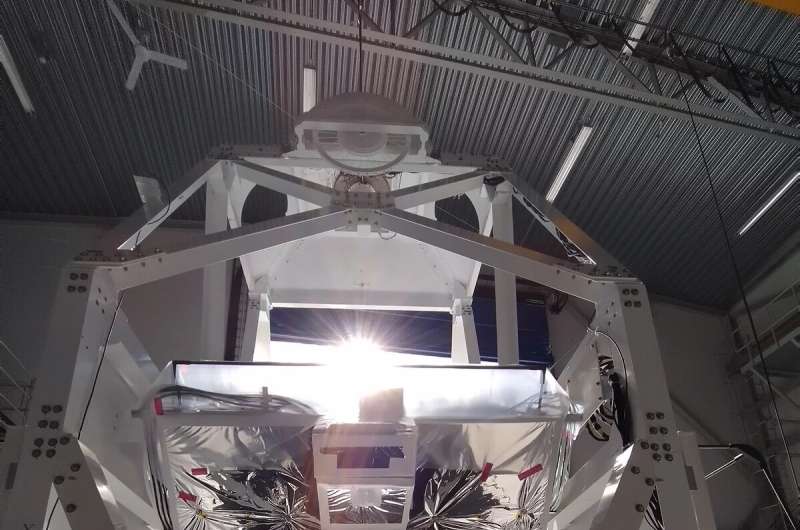
Approximately a month before it begins its research flight in the stratosphere, the balloon-borne solar observatory Sunrise III has looked at the Sun for the first time from its launch site at the Arctic Circle. In June, Sunrise III will take off from Esrange Space Center, the Swedish Space Agency's (SSC) balloon and rocket base in Kiruna (Sweden), and will climb to an altitude of about 35 kilometers. During its flight of several days, it will then take unique measurements of the Sun. In this way, processes in the chromosphere, the highly dynamic layer between the visible surface and the outer atmosphere of the Sun, will become visible more precisely than ever before. In the remaining weeks until launch, the technical and scientific teams from Germany, Spain, Japan, and the U.S. will prepare all systems and the scientific instruments for their mission and rehearse flight procedures and operations.
SpaceX brings 4 astronauts home, then launches 53 satellites
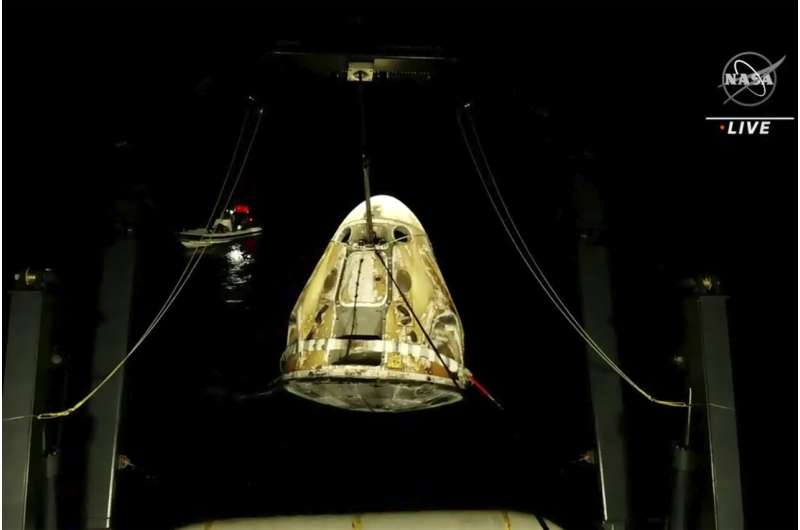
SpaceX brought four astronauts home with a midnight splashdown in the Gulf of Mexico on Friday, capping the busiest month yet for Elon Musk's taxi service.
A magnetic bubble could protect astronauts from dangerous space radiation
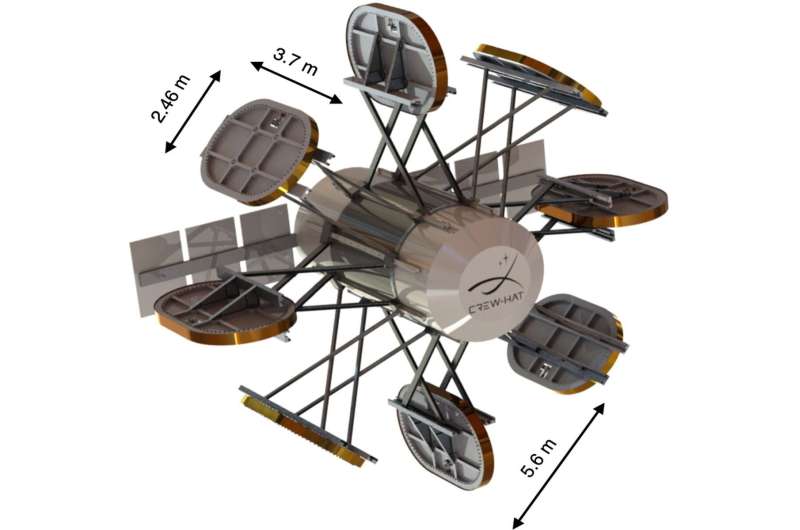
Humans have long dreamed of setting foot on Mars or beyond, and the advances by companies like SpaceX and Blue Origin means perhaps the dream could be closer than ever to becoming reality. But as it stands now, sending astronauts on long-duration missions to other worlds would be impossible because of the hazardous radiation levels in space, outside of Earth's protective magnetic field.
However, a new concept offers hope on the horizon, and the researchers behind it have received funding from the NASA Innovative Advanced Concepts (NIAC) program to build a prototype. Called CREW HaT, the proposal takes advantage of the latest advances in superconducting magnet technology to effectively shield spacecraft—and the astronauts inside—from harmful space radiation.
"We came up with a novel idea about how to shield spaceships from cosmic radiation and energetic solar radiation," said Dr.
M10 engine test success marks key step toward Vega-E
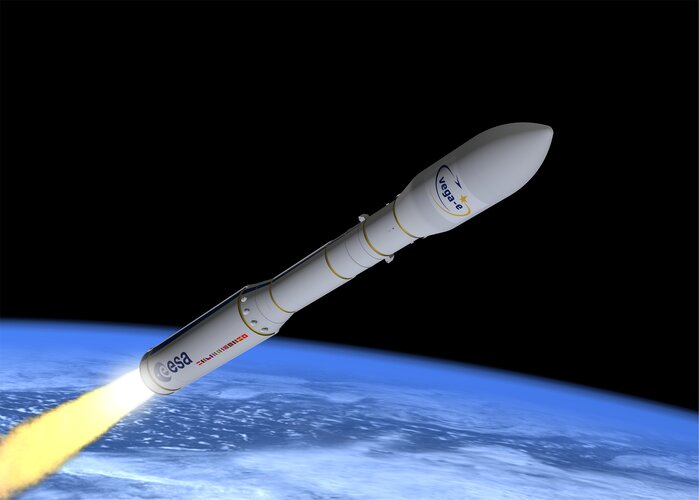
An innovative new rocket engine that is key to ESA’s strategy for ensuring Europe’s independent access to space has successfully completed its first hot-firing test run. M10 is the first of a new generation of “green” rocket motors tested in Europe, at the new SPTF plant (Space Propulsion Test Facility) built by prime contractor Avio in Sardinia.
Week in images: 02-06 May 2022
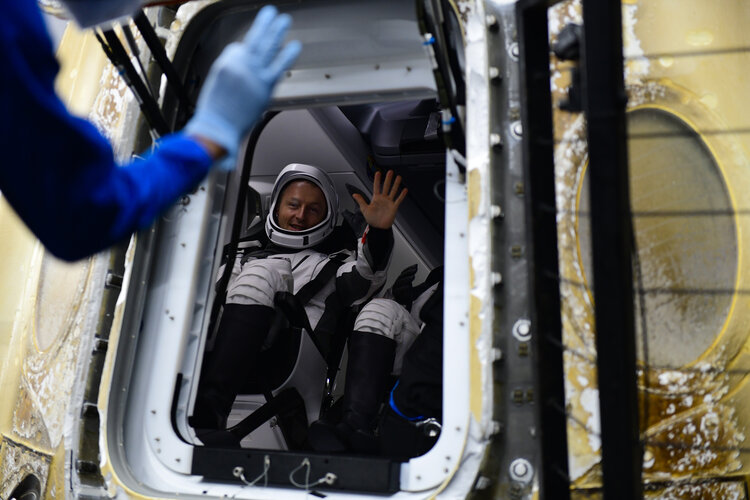
Week in images: 02-06 May 2022
Discover our week through the lens

